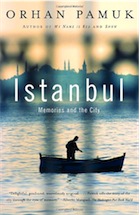For all those interested in language I came across this on an English language teaching website. I think it's worth reprinting in full as I was quite surprised and pleased at Fiona's stance.
A stiff letter to The Times - has the BBC gone mad?
"Dear BBC
I am a lover of radio 4 and am constantly energised, fascinated and enriched by its programmes. However, I feel moved to comment on the utter nonsense I was subjected to on The World Tonight, Tuesday 3rd August in the discussion on language and specifically “verbing” between Felicity Evans and her guest Rhea Williams, chairman of the Queen’s English Society.
The discussion centred on whether “verbing”, changing a noun to a verb, is acceptable, in response to President Obama’s comment that American troops would be “partnering” those from Afghanistan. Now this is a topic that delights the pedant (and therefore a certain percentage of the radio 4 audience) but produces nothing short of apoplectic rage in me. It is bad enough having to listen to yet another ill-informed discussion on language change and standardisation, but having to listen to non linguists bandy about their emotional reactions to something they just don’t like and clearly have no understanding of is both fury inducing and a waste of everyone’s time.
There are many linguists in the world such as the entire staff of the department of Educational and Professional Studies at King’s College London where I studied the MA English Language Teaching & Applied Linguistics or countless other academics who would have been able to provide an informed and reasoned discussion on this topic but no, someone at the BBC decided that the appropriate body to approach for an intelligent, well informed discussion would be The Queen’s English Society. Now, while I admit that some of their work is admirable, many of the comments in the discussion served as a reminder as to why I chose the words “utter nonsense” in my opening sentence.
Some examples on the topic of whether “verbing” is acceptable and I quote from the programme:
1. Rhea Williams: ...it depends if they are ugly or not.
Felicity Evans: Yes, I’m with you on that. If it’s elegant one should be able to get away with it but the trouble with that is that it’s a question of personal taste.
Yes, is it – discussion should end here.
2. RW: to grow a company, that’s actually just vile...What’s’ wrong with we’re trying to get the company to get bigger or we’re trying to make it better?
Indeed, but what’s wrong with to grow a company? Exactly, please. What... is... exactly... wrong?
3. RW: My most favourite one is “This door is alarmed”.
Oh how droll you are – I too can hardly contain myself for laughing.
4. RW: ... I think an awful lot of them are really horrid.
And I think you’re insane.
5. FE: ... if you fail to properly communicate what you mean, the language has failed.
Or there has been a breakdown in communication between the speaker and listener which is likely to be clarified by the use of repairing strategies such as saying “What do you mean?”
6. RW (in answer to FE’s previous insightful observation): Absolutely.
How?
7. FE: Business jargon is the worst. I saw a press release about encouraging children to access oily fish. How do you access an oily fish?
Go to Sainsbury’s – they have loads of fish.
8. RW: We often turn things into a verb for speed so you could say “Are you lemonading or wining?”
Mmm. At 9 syllables it is longer than “Do you want lemonade or wine?” which is 8 syllables. So the point about speed is what exactly?
9. RW: But if you’re going to try to access a fish, that’s just bonkers.
FE: It is bonkers.
Not nearly as bonkers as you two.
I wonder whether you could get a real expert i.e. a linguist in to discuss language change and the factors which influence it, in the process debunking some of the myths surrounding the subject. I’d be happy to provide a list of names and contacts but in the meantime please remember the following:
All languages change
Change is not wrong, it is change
Communities and groups use specific language or jargon for many socio-cultural reasons – leave them alone
Most people use language in a range of social situations and change it to adapt the situation
Business is not corrupting English, it is doing business
There is no such thing as Standard English. "
Yours,
Outraged, South London
For the entire discussion, go to:http://www.bbc.co.uk/iplayer/episode/b00t6trb/b00t6tqd/The_World_Tonight_03_08_2010/ and start listening from 25.50 minutes in.
An interesting read.





